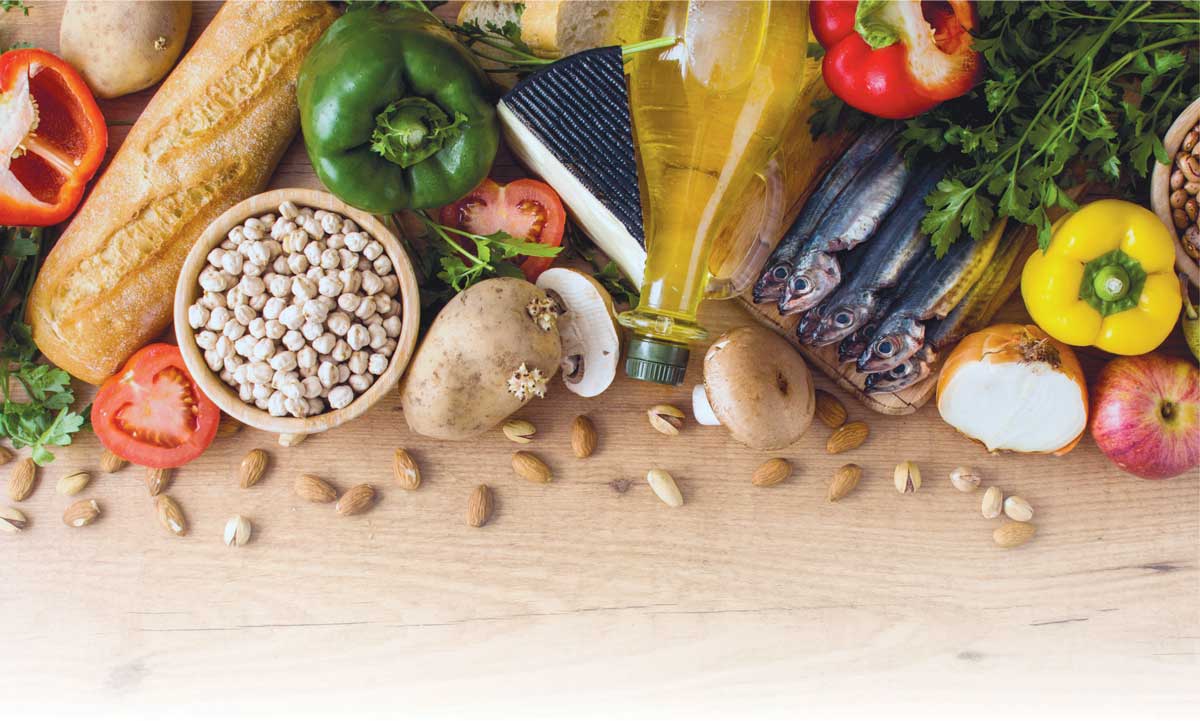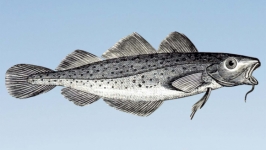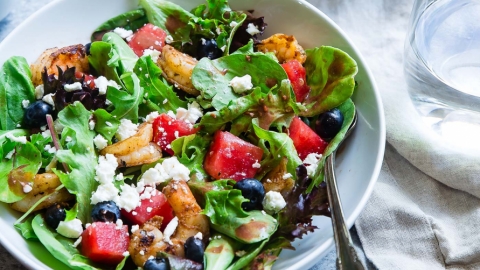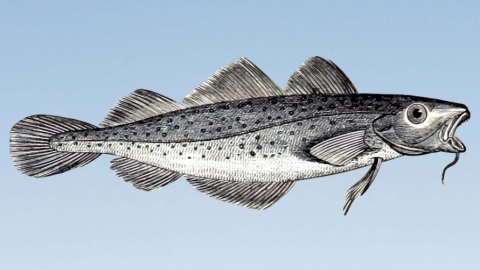Food Culture: The Delicious Benefits of the Mediterranean Diet
Olives, walnuts, dark leafy greens, plump ripe berries: while this might sound like the ingredients list for a healthy spring salad, they are just a few of the many nutritious foods featured in the Mediterranean diet.
Research on the health benefits of the Mediterranean diet dates back more than half a century. Ancel Keys, an American scientist from the University of Minnesota, studied in the 1950s how people from the countries surrounding the Mediterranean Sea—including France, Greece, Italy, and Spain—had overall better health, including lower cholesterol, a decreased risk of cardiovascular disease, diabetes, and even a reduced risk of certain cancers, over those who ate a typical American diet, which, at the time, consisted of much more meat, dairy, fried food, bread, and sugary foods than consumed today.
The diet is primarily plant-based and comprises many vegetables, fruits, whole grains, beans, legumes, and nuts. The main sources of fat are olive oil (drizzled generously) and moderate amounts of dairy, including cheese and yogurt. Meats, consumed sparingly, include primarily fish or poultry, with little to no red meat. While the diet avoids processed, sugary foods and butter, there is room for wine—so long as it’s with a meal.
The diet remains popular today. In fact, it was voted for the sixth year as the “Best Diet of 2023” by the U.S. News and World Report. Perhaps it has stuck around because it’s not so much a diet as a way of life.
“It’s interesting saying ‘diet’ because that word is very American—it’s really a lifestyle inspired by the different cultures around the Mediterranean Sea,” says Kim Kemper, nutritionist and holistic health counselor, who owns a private practice in Lambertville. “Eating nutrient-dense, whole foods makes you feel good, and when something puts you in a good mood, it’s easy to stick with it,” she says, adding that refined and processed foods can cause unpleasant mood fluctuations.
“Bread or foods containing refined sweeteners cause a spike in blood sugar, which will make you feel energized momentarily before leading to a sugar crash,” she says, noting that these foods also cause inflammation.
“Inflammation causes disease. Refined foods cause inflammation because they’re so far from their natural state that the body has to work harder to process it,” she says. “The foods that are part of the Mediterranean diet aren’t refined and are easily processed by our bodies, not to mention that fruits and vegetables are full of antioxidants, which help reduce inflammation.”
A diet rich in whole foods can also help you make more conscious eating decisions.
“When you have a craving, your body is trying to tell you that you’re lacking something,” Kemper says. “When you’re eating well, cravings tend to diminish.”
While scientists have found that the diet improves overall health, studies have shown it to be particularly beneficial for heart health and reducing the risk of diabetes.
“The Mediterranean diet study shows how fatty acids impact blood vessels and metabolic pathways in a good way,” says David Bleich, chief of the Division of Endocrinology, Diabetes, and Metabolism at Rutgers University in Newark.
“A study done at Rutgers, entitled ‘Almond Consumption and Cardiovascular Risk Factors in Adults with Pre-Diabetes,’ shows that eating 2 ounces of almonds (which contain Omega-6 fatty acids) significantly decreased insulin resistance,” he says. “Insulin resistance is when your body can’t process insulin correctly, making glucose build up in the body, which is a precursor to high blood sugar and diabetes.”
Bleich also explains that a seven-year study published in the American Journal of Nutrition in 2009 showed that people who consumed a Mediterranean diet had a 27–30 percent risk reduction of cardiovascular disease (like heart attacks, strokes, anxiety), equal to the use of statin drugs (like Lipitor) prescribed to lower LDL cholesterol we use today. While the statin users experienced a similar cardio risk reduction, it did not lower their LDL.
“This shows there are statin-independent factors that impact cardiovascular risk,” Bleich says. “This is quite important because we know that even with the newer drugs that provide a little more cardiovascular risk reduction, here’s a study showing that you can get the same type of cardiovascular risk protection through the Mediterranean diet that doesn’t lower LDL.”
Bleich also notes that the high consumption of fish associated with the Mediterranean diet also has some alluring heart-healthy benefits.
He cites a study called the “REDUCE-IT Study,” which analyzed the composition of fish oil capsules and the three major types of fatty acids they contain: DHA (docosahexaenoic acid), LA (linolenic acid), and EPA (eicosapentaenoic acid). The study purified EPA and put it in a capsule.
“The control group took a statin drug plus a capsule that looked like the EPA but was a placebo. The experimental group took the statin drug and the actual EPA capsule,” he says. “The experimental group that took the EPA capsule had an additional 27% cardiovascular risk reduction compared to the statin-only group, showing the added value of fatty acid consumption.”
While the Mediterranean diet may sound exotic, the principles remain the same wherever you live. Eating healthy, whole, unrefined foods is the best ticket to good health. Luckily for us, the Garden State has it all within easy reach.
MEDITERRANEAN DIET FOODS
A Mediterranean diet is primarily plant-based and comprises many vegetables, fruits, whole grains, beans, legumes, and nuts. The main sources of fat are olive oil and moderate amounts of dairy, including cheese and yogurt. In addition to the examples here, learn more at mediterraneanliving.com
VEGETABLES
Onions
Garlic
Potatoes
Artichokes
Zucchini
Eggplant
Squash
Corn
Cucumbers
Broccoli
Cauliflower
Mushrooms
Beets
Carrots
Celery
Peppers
Fennel
Cabbage
Leeks
Spinach
Arugula
FRUIT
Grapes
Tomatoes
Lemons
Honeydew
Oranges
Grapefruit
Apples
Pears
Cherries
Avocado
Watermelon
Peaches
Strawberries
Figs
WHOLE GRAINS, RICE & PASTA
Bulgur Wheat
Quinoa
Rice
Orzo Pasta
Whole Wheat
BEANS & LEGUMES
Lentils
Split Peas
Chickpeas
Kidney Beans
Green Beans
NUTS & SEEDS
Pine Nuts
Walnuts
Almonds
Chestnuts
Sesame Seeds
FISH & SEAFOOD
Sardines
Anchovies
Salmon
Sea Bass
Cod
Halibut
Tuna
Mussels and Clams
Shrimps and Prawns













